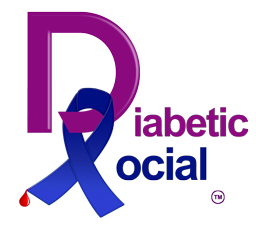
Headquarters: Nashville, TN
What is Diabetes?
Pre-diabetes- there are no clear symptoms—so you may have it and not know it
Type 2 Diabetes- the body doesn’t use insulin properly and is the most common form of diabetes
Type 1 Diabetes- the body does not produce insulin
Know Your Number!
Normal- <140 mg/dl
Pre-diabetes- 140-199 mg/dl
Diabetes- >200 mg/dl
Why Is It Important to know Your Number?
Get an A1C test to find out your average levels it’s important to know if you’re at risk for pre-diabetes or type 2 diabetes, or if you’re managing diabetes properly. The A1C test is also known as the hemoglobin A1C or HbA1c test it is a simple blood test that measures your average blood sugar levels over the past 3 months.
Diabetes: 6.5% or above
Normal: Below 5.7%
Pre-diabetes: 5.7% to 6.4%
Managing Diabetes with Continuous Glucose Monitoring (CGM)
Continuous Glucose Monitoring (CGM) is an innovative tool designed to help individuals manage their diabetes more effectively. With a small sensor inserted under the skin, usually on the abdomen or arm, a CGM system continuously monitors glucose levels, offering a comprehensive view of glucose trends around the clock. This technology can integrate with smart insulin pens and pumps, assisting you in making more accurate and timely decisions in your diabetes care. Companies like Abbott Libre, Medtronic, Eversense, and Dexcom provide a variety of CGM systems that can be tailored to suit different lifestyles and treatment approaches. By incorporating CGM into your diabetes management strategy, you're leveraging technology to make more informed decisions, enhancing your quality of life.
Types of Diabetics
Type 1 Diabetes
Type 1 Diabetes is a chronic autoimmune disease that occurs when the pancreas produces little to no insulin which is a hormone that helps the body’s tissues absorb glucose (sugar) so it can be used as a source of energy for the body. This happens when your body destroys beta cells, which make this hormone. When your beta cells are unable to produce hormones, this causes your blood glucose or sugar to rise, starving the cells.
Symptoms
· Increased thirst
· Frequent urination
· Extreme hunger
· Unintended weight loss
· Irritability and other mood changes
· Fatigue and weakness
· Blurred vision
Treatments
Treatments require endocrinologist input.
Medication
· Insulin replacement therapy: Insulin, the hormone that regulates blood glucose is regularly administered either through injection, or by using an insulin pump.
Causes
· Exact cause of this condition is not known
· Type 1 Diabetes is a result of an auto- immune destruction of pancreatic islet cells that produce insulin
· Genetics also plays a role in type 1 diabetes
Pancreatic diseases can also be the cause of Type 1 Diabetes
Type 2 Diabetes
Type 2 Diabetes is a condition results from insufficient production of insulin, causing high blood sugar. It is a chronic disease affecting the pancreas. Patient's pancreas doesn't produce enough insulin.
This results in abnormal levels of blood sugar. Most common symptom is abnormally high level of blood sugar. Medications are available to help manage the disease condition. Medications may work in different ways. A few may increase the production of insulin while others may improve insulin resistance.
Symptoms
Symptoms for type 2 diabetes usually develop slowly and many times asymptomatic. Common major symptoms are:
· Frequent urination
· Increased thirst
· Fatigue, tiredness
· Sudden weight loss
· Itching around the genitals
· Slow healing cuts or wounds
· Blurred vision
Treatments
Medications are available to help manage the disease condition. Medications may work in different ways. A few may increase the production of insulin while others may improve insulin resistance.
Causes
Type 2 Diabetes can occur when the body becomes resistant to insulin. Cells are not able to absorb glucose and convert it into energy as a result of this resistance.Excess abdominal fat is a major cause, in addition to genetics and lifestyle.
The risk factors include:
Obesity
Sedentary lifestyle
Family history
Age - people above the age of 45 years are at higher risk
Pre-diabetes
Gestational diabetes
Polycystic ovarian syndrome
Preventions
Healthy lifestyle choices can help prevent Type 2 Diabetes, and that's true even if you have biological relatives living with diabetes. If you've received a diagnosis of pre-diabetes, lifestyle changes may slow or stop the progression to diabetes.
Type 3 Diabetes
Type 3 Diabetes is someone who loves and cares for a diabetic. They are caregivers, family members, and friends. They help the diabetic manage their diabetes by monitoring their blood sugar and may help administer medicine as well. Most of all, a Type 3 gives love and support, which is the best medicine a diabetic can receive.



